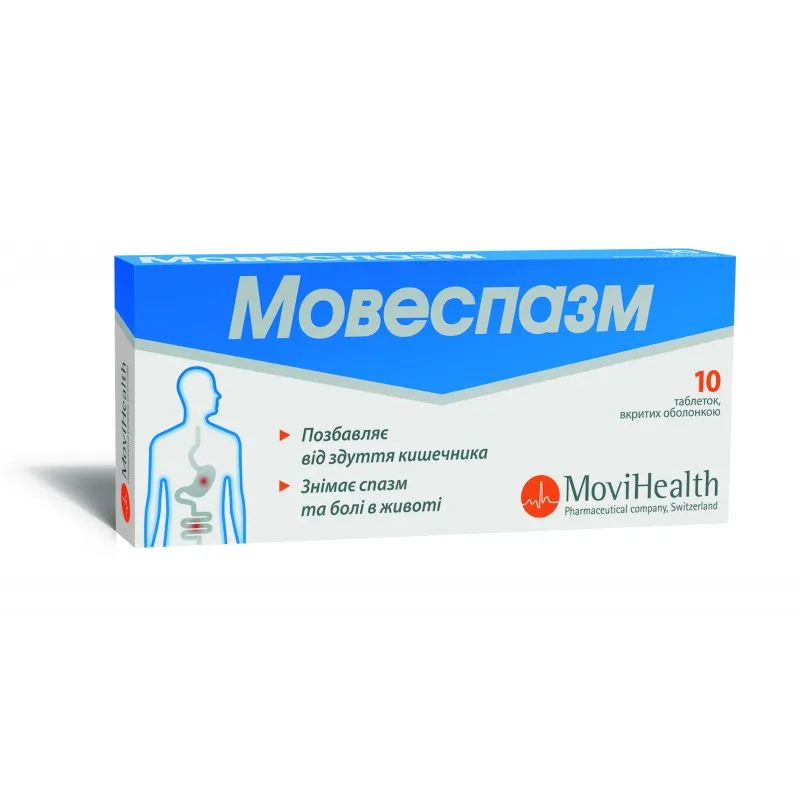Description
Movespazm (Simeticon, Dicycloverine) Coated Tablets №10
Ingredients
- Active ingredients: Simeticon, Dicycloverine
Dosage
- Recommended dosage: Take 1 tablet by mouth as needed, up to 4 times a day.
Indications
- Indicated for: Relief of symptoms associated with gastrointestinal spasms, bloating, and gas.
Contraindications
- Do not use if: Allergic to any of the ingredients, pregnant, or breastfeeding without consulting a healthcare provider.
Directions
- Directions for use: Swallow the tablet whole with a glass of water. Do not crush or chew.
Scientific Evidence
Movespazm (Simeticon, Dicycloverine) coated tablets have shown promising results in clinical studies for effectively reducing gastrointestinal spasms and related symptoms. A study published in the Journal of Gastroenterology and Hepatology demonstrated a significant improvement in bloating and gas symptoms in patients using a combination of Simeticon and Dicycloverine compared to a placebo group.
Additional Information
- It is important to follow the recommended dosage and not exceed the stated frequency of use.
- If symptoms persist or worsen, consult a healthcare professional.
- Keep out of reach of children. Store in a cool, dry place.
Furthermore, the pharmacological action of Simeticon involves breaking down gas bubbles in the gastrointestinal tract, providing relief from bloating and discomfort. Dicycloverine acts as an antispasmodic, helping to reduce muscle spasms in the digestive system. This dual mechanism of action makes Movespazm an effective option for managing gastrointestinal issues.





